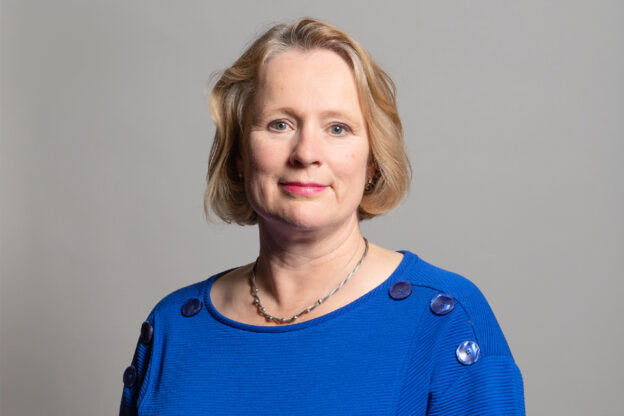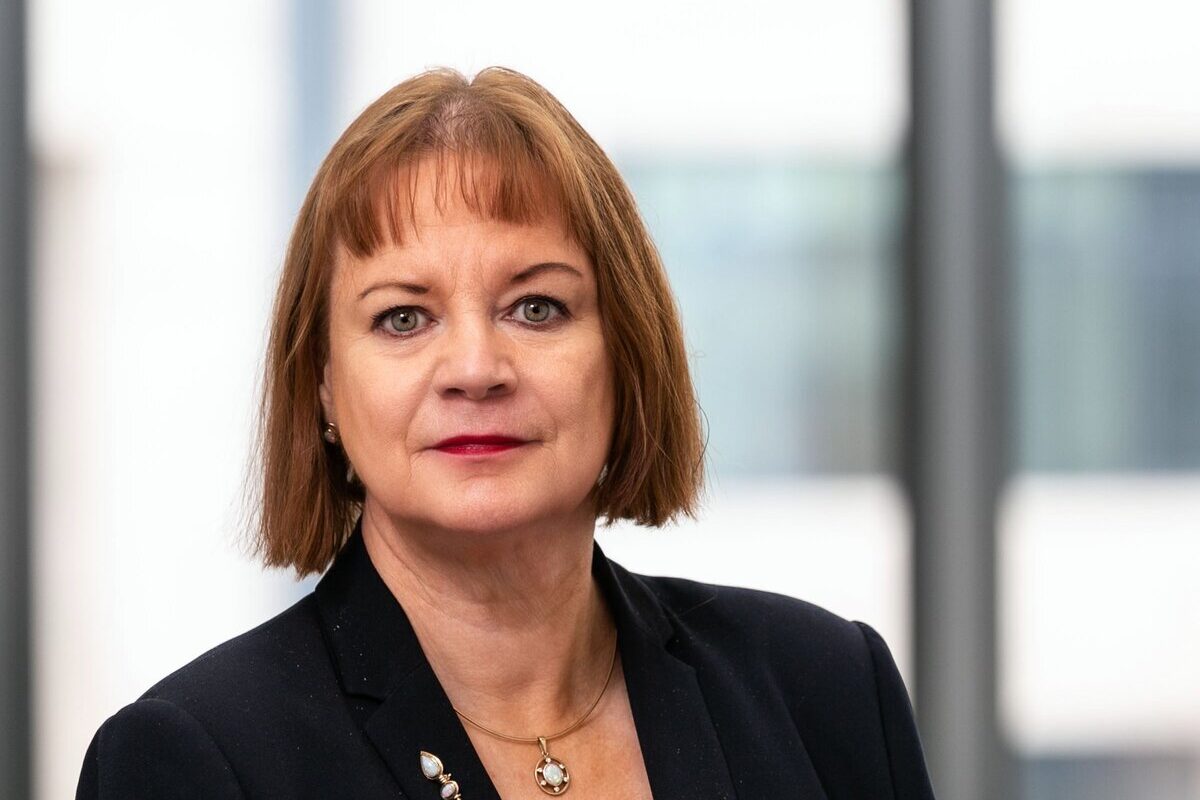£1.1 million funding awarded to five leading anti-bullying organisations

#AntiBullyingWeek2021 – MORE SUPPORT FOR SCHOOLS TO TACKLE BULLYING
As Anti-Bullying Week gets underway, the Department for Education has confirmed funding for five leading organisations, worth over £1m in total, to support schools and colleges in championing tolerance and respect as part of their responsibility to tackle all forms bullying.
The announcement comes during anti-bullying week (15-19 Nov).
Paul Whiteman, general secretary of school leaders’ union NAHT said:
“Additional funding for organisations that support schools in their work to tackle all types of bullying is welcome.
“It’s encouraging to see a particular focus on protecting and supporting pupils with special needs and disabilities, and those with protected characteristics – including the LGBT+ community, and victims of hate-related bullying. We know that certain groups are more likely to be impacted by bullying and it’s good to see this recognised in the additional support announced today.
“The rise of online bullying should be a particular concern for us all. The growth in popularity of social media amongst young people has created a whole new set of challenges that go way beyond the school gate. Online bullying can do enormous harm, and far more needs to be done by both government and social media companies themselves to protect young people.
“The Online Safety Bill provides the government with an important opportunity to improve the way in which social media companies safeguard children and young people especially, and also how those who post harmful content are held to account for their actions. It is an opportunity we cannot afford to miss.
“Schools have a vital role to play when it comes to preventing and tackling bullying of all types but they cannot do it alone. We need parents, government and social media companies to all to play their part to protect and educate children and young people.”
Over £3.5 million has already been provided to charities and organisations to prevent bullying, with the latest funding boost will go towards projects and programmes that tackle bullying including LGBT, special educational needs and disabilities (SEND), and victims of hate-related bullying.
This will build on the Government’s new relationships, sex and health education (RSHE) curriculum, which has been designed to reflect a diverse range of views and backgrounds, whilst fostering respect for others and the understanding of healthy relationships. Subjects include teaching about bullying, healthy friendships, equality and the risks of stereotyping.
A new support scheme for school leaders is also being launched today, backed by £760,000 to promote good wellbeing across pupils, teachers and school and college staff. The scheme will provide one-to-one counselling and peer support to around 2,000 school leaders, helping those at deputy head level and above with their mental wellbeing.
Children and Families Minister Will Quince said:
“Bullying in any form is unacceptable and can have a devastating effect on children, young people and their families. It is so important that we all take a stand against bullying so we can help create safe and inclusive places for young people both in schools and online.
“It’s crucial that our children and young people know how to treat one another with respect and celebrate one another’s differences. That’s why we are supporting organisations leading in the way with providing schools with specialist support and training for thousands of teachers to help respond to any concerns and to make sure bullying never prevents any young person from fulfilling their potential.”
Rishworth School and Heathfield Preparatory School Headmaster Anthony Wilkins said:
“We are proud to be supporting this vital initiative throughout our School not only this week, but all year round. We have a zero tolerance stance to bullying, as well as a positive behaviour policy, which reinforces this to everyone across our School.
“Our students are encouraged to be individuals and through a combination of our excellent curriculum, unrivalled pastoral care and superb enrichment and extension activities, they have the perfect platform to do so.”
Old Rishworthian and now Chief Executive of the Anne Frank Trust, Tim Robinson tweeted:
“Thank you Rishworth School – you played a major part in giving me lifelong values of tolerance, kindness and good humour.”
He added: “I’m very glad to see my alma meter engaging in #AntiBullyingWeek.”
Education Staff Wellbeing Charter
An updated Education Staff Wellbeing Charter will also be published this week, which sets out commitments from the government, Ofsted, education unions and charities, to promote and protect the mental health of the education workforce. Through the charter, the department pledges to work with the sector to drive down unnecessary workload, improve access to wellbeing resources, and champion flexible working, among a range of actions to support staff wellbeing. The department is now encouraging all state funded schools and colleges to sign up to the charter to create a united approach to supporting staff.
The Government’s Online Safety Bill will also deliver a ground-breaking new system of accountability which will require internet companies to protect its users from online abuse, and will make it easier to report harmful activity. Online safety should also be included in a school’s child protection policy and the Department for Education’s Teaching Online Safety in Schools guidance aims to support schools in teaching pupils how to stay safe online within new and existing school subjects, such as RSHE, Citizenship and Computing.
Today’s announcement comes ahead of the UK government hosting its first global LGBT conference in June 2022. As announced by the Government earlier this year, the theme of the event will be ‘Safe to be me’, with an aim to make progress on legislative reforms against violence and discrimination, and protect and promote the equal rights of LGBT people from around the world. The global event will bring together elected officials, policy makers, and the international LGBT community to protect and promote the rights of LGBT people around the world.
Minister for Equalities, Mike Freer, said:
“Bullying, especially when it targets an innate characteristic like being LGBT, is particularly damaging and distressing to children. It is vital we stamp it out and equip our brilliant teachers to do so effectively.
“Every child has the right to be themselves and thrive at school. I look forward to meeting some of these organisations to hear more about their work.”
Bullying in any form is unacceptable and can have a devastating effect on children, young people and their families.
That’s why, as anti-bullying week continues, we have confirmed funding for five leading organisations, worth over £1m in total, to support schools and colleges as part of their responsibility to tackle all forms bullying.
We have also launched a new mental health support scheme for school leaders, which will help promote teachers’ wellbeing.
Here’s everything you need to know about the new measures announced today.
1. So, what have we announced today?
Thousands of schools in England are set to benefit from further support, resources, and training to help them combat bullying, promote diversity in children and young people, and improve wellbeing for staff.
Building on the £3.5m the Department has already delivered to charities and organisations to prevent bullying since 2016, the latest funding boost will go towards projects and programmes that tackle bullying focused on protected characteristics including LGBT+, special educational needs and disabilities (SEND), and victims of hate-related bullying.
As part of the department’s wider measures to promote good wellbeing across pupils, teachers and school and college staff, a new support scheme for school leaders is also being launched today, backed by £760,000 of Government funding.
2. Which organisations will receive this new funding for anti-bullying support?
Organisations that will receive grants from the Department are:
- National Children’s Bureau (Anti-Bullying Alliance): ‘United Against All Bullying’ will focus on reducing bullying of those most at risk: children and young people with SEND, children and young people who experience racist and faith-targeted bullying, sexual bullying, homophobic, biphobic and transphobic bullying, looked-after children, young carers and those on free school meals.
- Diversity Role Models: This will deliver a package of interventions for schools to ensure staff have the knowledge and skills to tackle and prevent bullying and create inclusive school cultures. This will be anchored by training about diversity and the protected characteristics, featuring personal lived experience stories to embed empathy.
- Equaliteach: This intensive, evidence-based, anti-bullying programme will be delivered to at least 80 schools per year. Each school receives a dedicated EqualiTeach Representative who will work with them on policies, consult with the school community, review existing practice, and develop and implement a bespoke action plan. Each school will also receive a series of online and in-person staff training, networking opportunities with other schools and an Agents for Change event for pupils.
- Anne Frank Trust: ‘Different But The Same’, an intensive anti-bullying support 3-year project, will provide training and support for nearly 80,000 young people, their teachers and schools to tackle bullying focused on protected characteristics including LGBT+, SEND, race, religion/belief or sexual/sexist-based bullying.
- The Diana Award: This project will empower young people with the skills, tools, confidence and knowledge needed to significantly transform school culture and provide support to peers. The award has the aim of reducing prevalence of bullying with particular focus on protected characteristics and associated bullying, and increased school confidence and ability in responding to incidents of bullying effectively.
3. Can I hear more about the support scheme for teachers?
The new mental health support scheme for school leaders will be delivered by the charity Education Support and will run from this autumn until March 2023.
The scheme will provide one-to-one counselling and peer support to around 2,000 school leaders, helping those at deputy head level and above with their mental wellbeing.
It builds on a pilot involving over 350 school leaders, which was launched in response to the challenges brought about by the pandemic. Eligible school leaders can access the programme from today through the Education Support website and helpline.
An updated Education Staff Wellbeing Charter will also be published this week, which sets out commitments from the government, Ofsted, education unions and charities, to promote and protect the mental health of the education workforce.
Through the charter, the department pledges to work with the sector to drive down unnecessary workload, improve access to wellbeing resources, and champion flexible working, among a range of actions to support staff wellbeing. The department is now encouraging all state funded schools and colleges to sign up to the charter to create a united approach to supporting staff wellbeing.
4. What else is the government doing to help tackle bullying in education?
There are a range of measures in place to combat bullying in the education system. A few of these are outlined below.
- The department’s relationships, sex and health education (RSHE) guidance and training resources give schools the confidence to construct a curriculum that reflects diversity of views and backgrounds, while fostering respect for others and the understanding of healthy relationships.
- The new RSHE subjects also include teaching about bullying, healthy friendships, equality and the risks of stereotyping and online safety to ensure children are kept safe both in school but also at home, where cyberbullying can continue. Online safety should also be included in a school’s child protection policy. The Department for Education’s Teaching Online Safety in Schools guidance aims to support schools in teaching pupils how to stay safe online within new and existing school subjects, such as RSHE, Citizenship and Computing.
- The Government’s Online Safety Bill will also deliver a ground-breaking new system of accountability which will require internet companies to protect its users from online abuse and will make it easier to report harmful activity.
- The Department’s Preventing and Tackling Bullying guidance provides further advice for schools on preventing and responding to bullying, including advice for head teachers and school staff on cyberbullying. As part of this, schools are also required to have policies to prevent all forms of bullying that give head teachers the confidence to ensure they can deal with any behaviour that prevents a calm, disciplined learning environment.
- Today’s funding also comes ahead of the UK government hosting its first global LGBT conference in June 2022. As announced by the government earlier this year, the theme of the event will be ‘Safe to be me’, with an aim to make progress on legislative reforms against violence and discrimination and protect and promote the equal rights of LGBT people from around the world. The global event will bring together elected officials, policy makers, and the international LGBT community to protect and promote the rights of LGBT people around the world.
Organisations that will receive grants from the Department are:
- National Children’s Bureau (Anti-Bullying Alliance). ‘United Against All Bullying’ will focus on reducing bullying of those most at risk: children and young people with SEND, children and young people who experience racist and faith-targeted bullying, sexual bullying, homophobic, biphobic and transphobic bullying, looked-after children, young carers and those on free school meals.
- Diversity Role Models. This will deliver a package of interventions to schools to ensure staff have the knowledge and skills to tackle and prevent bullying and create inclusive school cultures, anchored in training about diversity and the protected characteristics, featuring personal lived experience stories to embed empathy.
- Equaliteach. This intensive, evidence-based, anti-bullying programme will be delivered to at least 80 schools per year. Each school receives a dedicated EqualiTeach Representative who will work with them on policies, consult with the school community, review existing practice, and develop and implement a bespoke action plan. Each school will also receive a series of online and in-person staff training, networking opportunities with other schools and an Agents for Change event for pupils.
- Anne Frank Trust. ‘Different But The Same’, an intensive anti-bullying support 3-year project, will provide training and support for nearly 80,000 young people, their teachers and schools to tackle bullying focused on protected characteristics including LGBT+, SEND, race, religion/belief or sexual/sexist-based bullying.
- The Diana Award. This project will empower young people with the skills, tools, confidence and knowledge needed to significantly transform school culture and provide support to peers, with the aim of reducing prevalence of bullying with particular focus on protected characteristics and associated bullying, and increased school confidence and ability in responding to incidents of bullying effectively.
Funding for the five anti-bullying grants will be available from August 2021 to March 2022, but the Department will fund these organisations for a further 2 years beyond March 2022, dependent on successful delivery of agreed outcomes in year one and the continuation of government funding.
Details of speakers and delegates for the LGBT conference will be confirmed in due course.
Education Support will deliver the new mental health support scheme for school leaders and will run over 18 months until March 2023. The scheme builds on a pilot involving over 350 school leaders which was launched in response to the challenges brought about by the pandemic. Eligible school leaders can access the programme from today through the Education Support website and helpline.
The Department’s Preventing and Tackling Bullying guidance provides further advice for schools on preventing and responding to bullying, including advice for head teachers and school staff on cyberbullying.
Children’s Minister speaks during Anti-Bullying Week: Vicky Ford addresses panel at the Diana Award event

Vicky Ford addresses panel at the Diana Award event on Wednesday 18 November to mark Anti-Bullying Week
I would like to start by thanking all the organisations involved in organising and taking part in this year’s Anti-Bullying Week. I know it has been quite challenging to arrange this year – in what has been a very difficult time due to COVID-19.
We know bullying can have a devastating effect on children and their families, and we must make sure that we do not let up in our efforts to tackle it, especially at this particularly difficult time in children’s lives.
This year’s theme is ‘United Against Bullying’ and I am so proud to be supporting it. It feels particularly important right now as it gives us an opportunity to bring together children and young people to focus on this important issue, and to shine a light on the positive things that we can all do to help put a stop to it.
As many of you will know, the Department for Education has been a proud partner of the Diana Award since 2011, and we have been providing funding for the Anti-Bullying Ambassadors Programme since 2016. This funding has been used to train and support thousands of children and young people to become ambassadors, and I am so pleased that the Diana Award will be continue to support schools when our grant programme ends next year.
I welcome the Demos independent evaluation of the Anti-Bullying Ambassadors programme, and I would also like to congratulate the Diana Award for empowering over 35,000 young people to make a real difference in their schools through the programme – what an achievement.
Anti-Bullying Ambassadors provide ongoing peer support to their cohort and go on to share best practice. This is incredibly important, as we know that many young people turn to their friends and peers first when they have a concern or issue.
Having said that, the Government is committed to supporting schools, and indeed all education settings, to prevent and tackle all forms of bullying. We want schools to be safe, calm places where pupils can thrive.
Bullying can also have a serious effect on mental health. Children who are exposed to bullying are likely to experience higher rates of anxiety, depression, and self-harm in adulthood.
In these unprecedented times, many pupils are returning to school having been exposed to a range of adversity and trauma including bereavement, anxiety and in some cases increased welfare and safeguarding risks. Some children, particularly vulnerable groups, will need additional support and access to services such as educational psychologists, social workers and counsellors.
To support these children, we have put in place a range of measures, including guidance for settings and an £8m training initiative for educational staff and Local Authority services to support children and young people’s mental health and wellbeing. This will help to make sure that schools are alert to underlying issues arising as a consequence of the pandemic, which might lead to behaviour issues and bullying.
The challenge has broadened over recent years with more and more use of online activities such as social media and gaming. Spending time online can be very beneficial for children, particularly at the moment where it can provide the opportunity to connect with friends and family. But we recognise the worry about online safety.
The evidence does suggest that a lot of online child bullying is an extension of the bullying that happens between pupils at school. But online bullying follows children back home, is difficult to escape from, and the bully can also hide behind the anonymity of online platforms. Worryingly, online bullying can rapidly amplify, escalate, and go viral. This brings extra pressure to the victims. I want to make it clear that all forms of bullying, including cyberbullying, for whatever reason, is unacceptable.
I am also concerned by the use of deeply offensive language on certain online platforms. While some social media platforms let the user regulate content such as with profanity filters, others do not. Therefore, vile language that would never be printed or expressed in a traditional newspaper or media broadcasts, is allowed to run rife across Twitter.
I am concerned that this online activity normalises hate speech and normalises bullying. I want to send a clear message that deeply offensive language on social media is unacceptable, just as it is unacceptable face to face. It should never be tolerated or dismissed as banter.
To help in our efforts to combat cyberbullying and support children from all forms of online harm we have published specific guidance to help schools teach their pupils how to stay safe online. This guidance helps schools to ensure that children have the skills and knowledge they need to make the best use of the internet and technology in a safe, considered and respectful way.
Obviously, children’s online life extends far beyond what schools can control and influence. These efforts need to be backed up by a responsible approach from social media platforms, who must take responsibility for what happens on their watch, and especially when children use their services.
The Government remains committed to delivering legislation to tackle online harms, as set out in the online harms white paper. This will introduce a statutory duty of care on companies to take steps to protect their users, including children, from harm.
But I want to be clear that companies should not wait for legislation to act – they can make a real difference to the lives of children right now.
Protecting children from online harms is also part of wider government priorities. Research shows that around a quarter of children and young people have sent a nude image to someone they are interested in; and almost half have received a nude image of someone else, sent by that same person. The potential risks of creating or sharing these types of images are significant – and it may lead to embarrassment, bullying or indeed vulnerability (for example blackmail) if shared further.
That is why we are working with the UK Council for Internet Safety’s Education Working Group, in consultation with the National Police Chief’s Council, to update guidance for education settings working with children and young people on sharing nudes and semi-nudes.
We also work with other experts such as the National Crime Agency, Internet Matters, the Internet Watch Foundation and the NSPCC to help make sure children are safe online, whether in the classroom or learning from home.
I know that tackling bullying is a priority for many organisations both inside and outside government. I recently met with the All-Party Parliamentary Group on Bullying, who are supported by the Red Balloon Learner Group, to discuss our future plans for anti-bullying policy and the latest research and findings regarding bullying in schools.
So let me finish off by thanking everyone – young and old – across the country who is working to be united against bullying. I look forward to hearing more about this week’s events and working with you all to help tackle bullying. Together, we can stop bullying for good. Thank you.












Responses